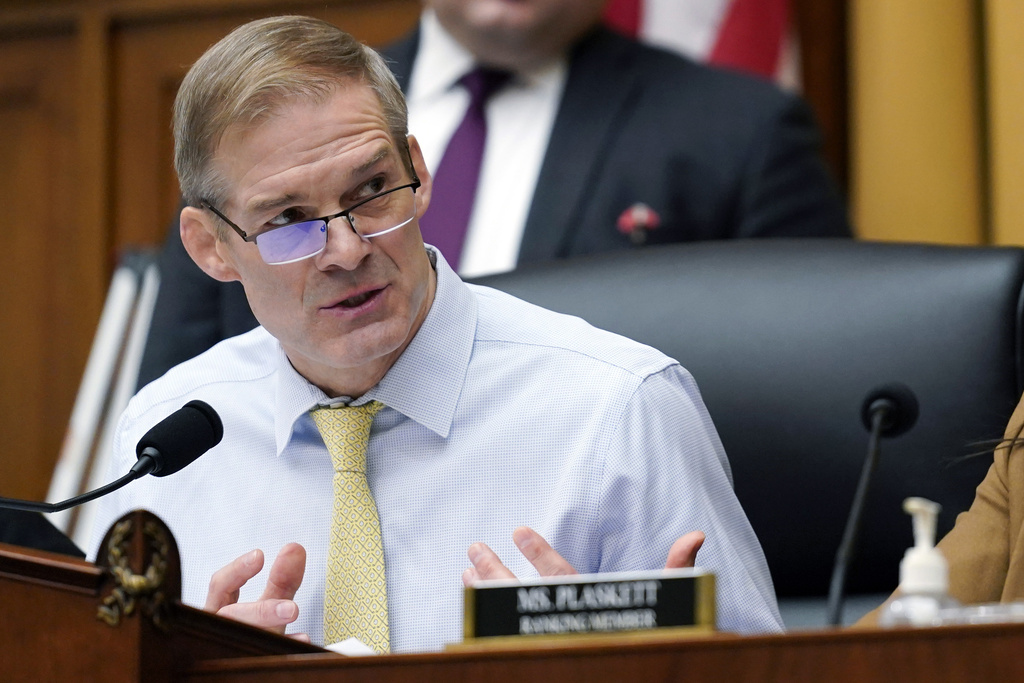How many amendments does the U.S. Constitution have? What are the branches of government? Can you explain them, and how does the president fit in? Americans younger than 25 and not employed in certain service-driven jobs may have to brush up on these topics and others if Vivek Ramaswamy is elected president in 2024.
The 26th amendment to U.S. Constitution was passed in 1971, lowering the voting age from 21 to 18. The drive behind the change was increasing pressure from young people who could be drafted into miliary service at 18 but could not vote until three years later.
Ramaswamy – an announced candidate for the 2024 GOP presidential nomination – made this observation on American Family Radio Wednesday: "[That age group], 18–25-year-olds, they almost don't vote at all. It's less than a quarter that do today."
A businessman and newcomer to national politics, Ramaswamy believes that with citizenship comes responsibility.
"What I've said is I would support a constitutional amendment that raised the voting age from 18 to 25, but which still allows you to vote at the age of 18 if you either serve in the military or in a first responder role for at least six months," Ramaswamy told show host Jenna Ellis.
Objective: Resurrecting national pride among the young
Under the candidate's plan, police, firefighters and military service would be examples of jobs that would allow 18-year-olds to continue to vote. Others, however, would have to pass a test similar to that required of immigrants who seek to become naturalized citizens. Ramaswamy (pictured) was born in Cincinnati; his parents moved to the U.S. from India.
 "If you don't serve [in any of those jobs], at the very least [it would require] that you would know something about the country; and if you don't want to do that, then fine, you at least live … as an adult and experience your country – presumably as a taxpayer – for a few years and then vote at the age of 25," Ramaswamy explained.
"If you don't serve [in any of those jobs], at the very least [it would require] that you would know something about the country; and if you don't want to do that, then fine, you at least live … as an adult and experience your country – presumably as a taxpayer – for a few years and then vote at the age of 25," Ramaswamy explained.
Tinkering with the voting age is not a new topic – but Democrats want to see it fall, not rise. According to Ramaswamy, his political advisors have urged him not to make this part of his platform.
"They said 'No one's talking about this. You're just going to hurt yourself,'" he said. "One person said it would be a campaign-ender if I rolled it out. My view is I would rather speak the truth at every step of the way and lose this election rather than to win by playing some political 'snakes and ladders.'"
While polling indicates young people don't turn out en masse on Election Day, the presidential candidate suggests they also take little pride in being American. Ramaswamy said the difficulties the service branches face in attracting new recruits is an example of waning national pride from younger Americans.
"Less than 15% of them say they're even proud to be American. We had a 25% recruitment deficit in our military last year. We're not going to fix the decline of civic pride by just sitting on our hands and complaining about it. We're going to have to think boldly, ambitiously of how we actually revive civic duty and civic pride in the next generation," Ramaswamy said.
Ramaswamy said the feedback he's gotten in early campaign stops goes against the advice he's received.
"My sense of traveling the country to grassroots audiences in Iowa, New Hampshire and elsewhere is that that's what people are hungry for," he said.
Protected classes: eliminate or modify
Ramaswamy believes civic pride could also get a boost if the government would examine its federally protected classes. Many groups that could be subject to harm or harassment due to a shared characteristic such as sexual orientation, national origin, age, disability or religion are legally protected at federal, state or local levels.
Ramaswamy proposes making political expression a civil right. "The core issue here is applying the civil rights laws even-handedly, which we don't do [currently]," he said.
The problem, he continued, arises when civil rights for a protected class are broadly applied and free speech is severely limited. He cited the following example:
"A grandmother who wore a red sweater on Fridays to celebrate veterans, because there's one employee who said that made them feel uncomfortable, that was considered to be potentially a Title VII violation. I'm not making this stuff up," Ramaswamy said. "The law has created the conditions for viewpoint-based discrimination while leaving political viewpoints unprotected. That's wrong."
But the law, he argued, can be the conduit for the fix if political expression becomes a protected class and is elevated to a higher level of free speech.
"If you can't fire somebody because they're black or gay or Muslim or white or Jewish or Hindu or whatever, you should not be able to fire them just because they're an outspoken conservative either," he stated.














